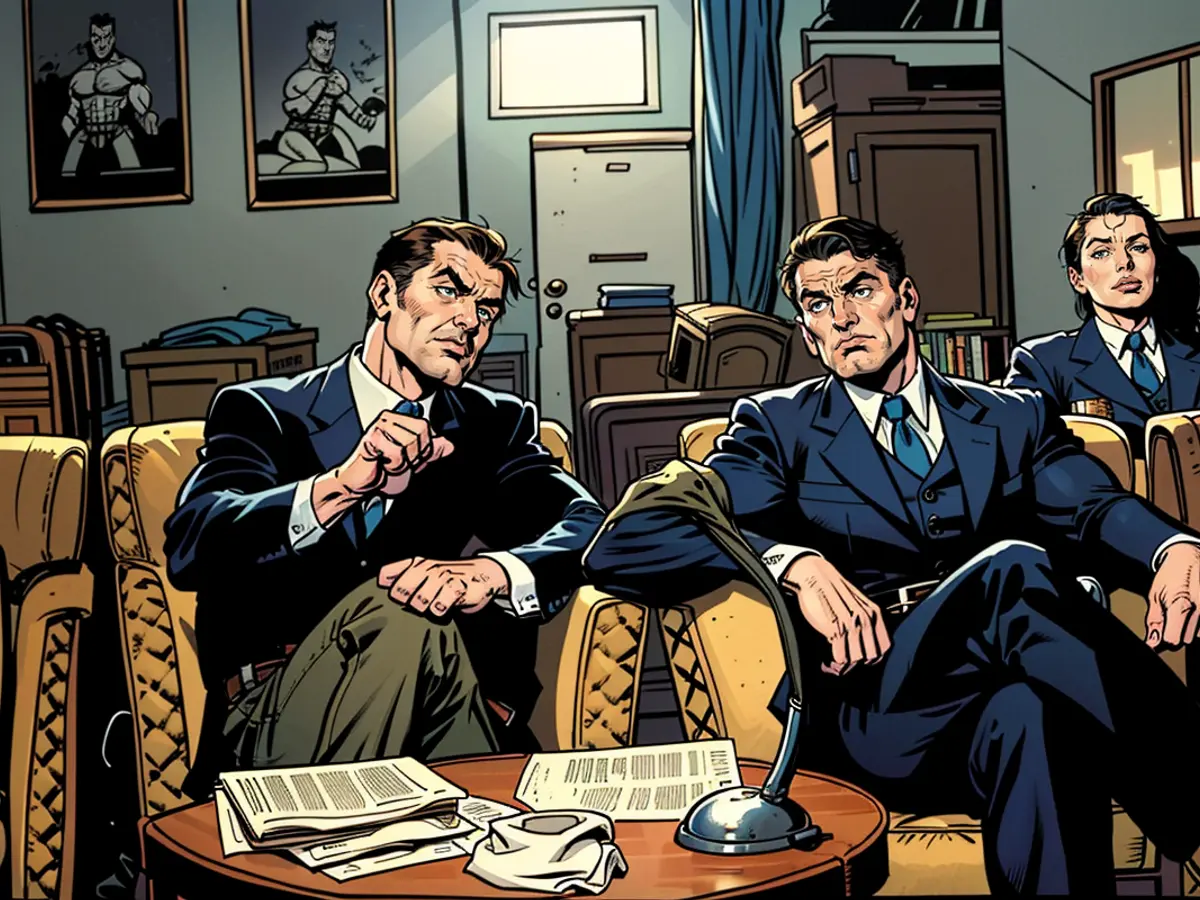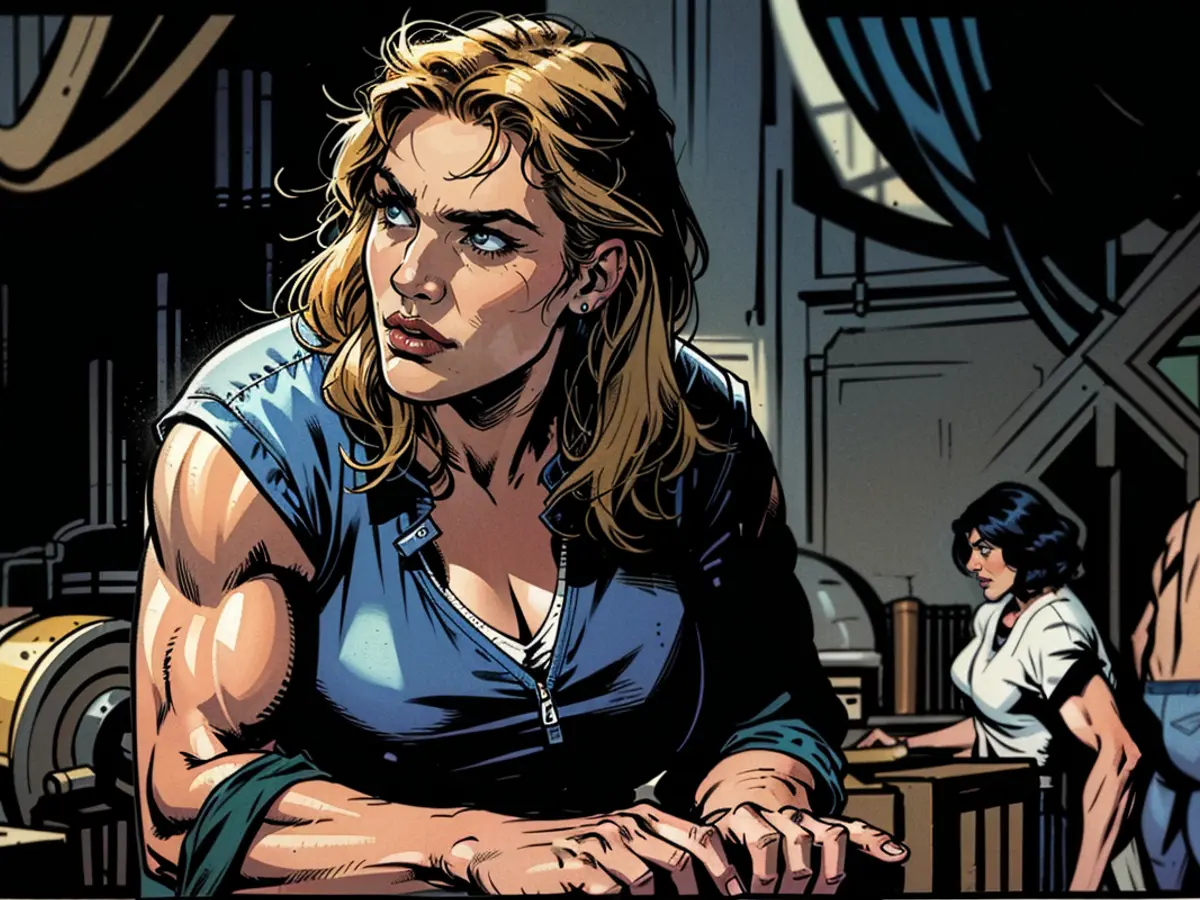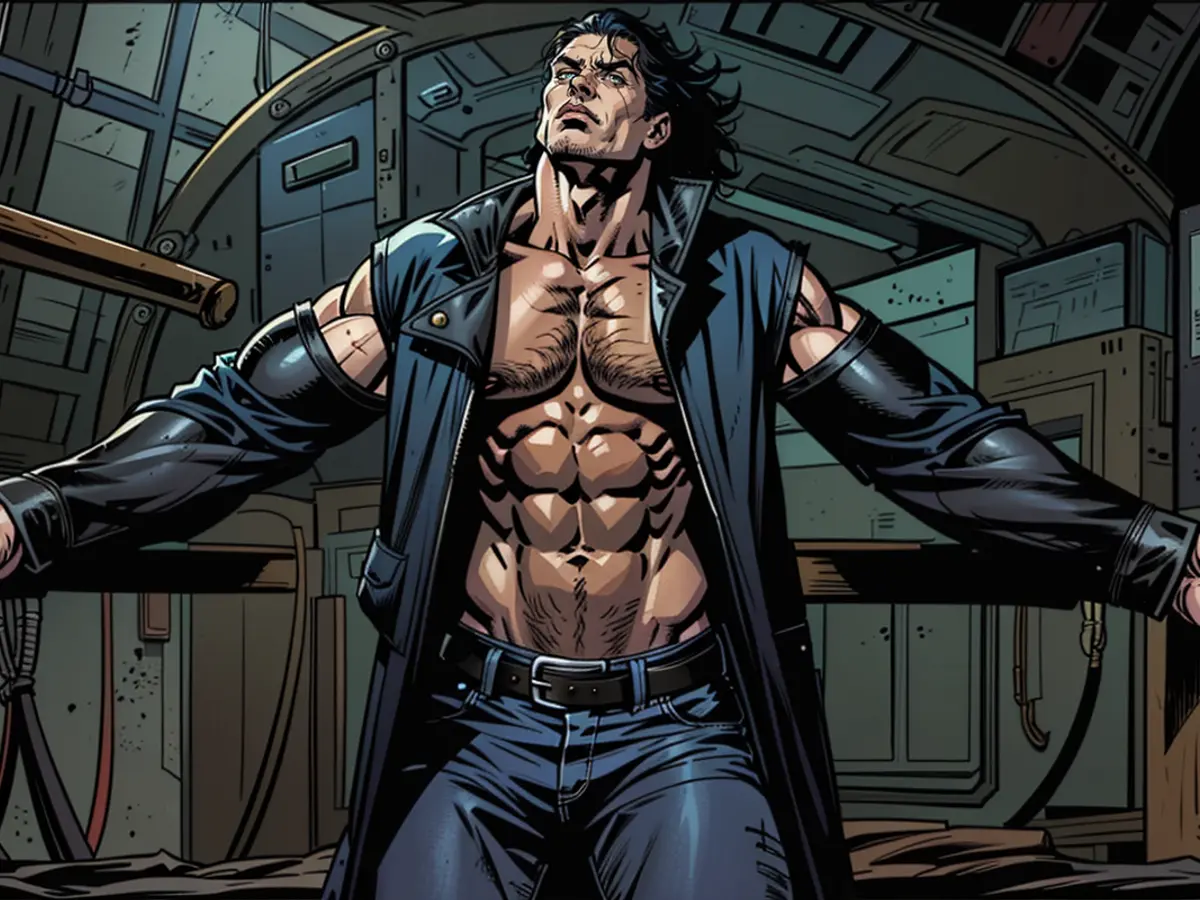New in cinema - Affordable: Robert Stadlober in "Leader and Seducer"
Austrian actor Robert Stadlober has shaped numerous strong character portraits during his nearly quarter-century long career. For instance, the now 41-year-old has impressed in film productions such as "Sonnenallee", "Crazy", "LasVegas", and most recently "Andrea lets herself be divorced". In the anti-Nazi drama "Führer und Verführer" by author and director Joachim A. Lang ("Mackie Messer – Brecht's Dreigroschenfilm"), Stadlober now outdoes himself. Numerous film awards should be rightfully his.
Robert Stadlober embodies Joseph Goebbels, Hitler's propaganda minister. The challenge: Neither demonizing nor caricaturing him, he portrays the Master of Lies and juggler of populist phrases in the service of the fascist unjust state as a civilian, art lover, husband, father, and lover. He does not diminish him to an ordinary person like you and me. The monster lurks behind the facade of the Ordinary.
Cynical Self-Importance and Egomania
The film covers the years 1938 to 1945, from the annexation of Austria to the end of the Second World War. The finale addresses the suicides of Hitler (Fritz Karl), Goebbels, and their closest associates, including the six children of Joseph and Magda Goebbels (Franziska Weisz). A flood of images of the war is not present. The scenes and documentary footage focus on the appearance of the protagonists in their daily lives, in their offices, villas, restaurants, even in the Wolfsschanze, that war quarters of Hitler, in which the assassination attempt on him on July 20, 1944 was attempted.
With meticulous detail, it is shown that those in power were only interested in their own well-being. For them, unlimited power over people and territories was a matter of course. They shaped the world according to their will with ruthless and unprecedented violence. The pseudoreligious fanaticism of a right-nationalist worldview is clearly evident.
Connection to Today
The connection to the present is made very clear. This is also indicated by seemingly insignificant moments of the action. For example, Adolf Hitler says to Joseph Goebbels in a conversation, "With advertising, any Tom, Dick, or Harry can come to power." Anyone who hears this cannot help but think of present-day demagogues and populists. Goebbels had newspapers, radio, and cinema at their disposal as propaganda tools. The palette has expanded enormously in the age of the Internet. It's chilling.
Similar to the previous year's critically acclaimed worldwide success "The Zone of Interest", which won two Oscars and many other international awards, "Führer und Verführer" shows how the operators of the Nazi regime's death machine lived, proving that they had discarded all humanity like an old piece of clothing. The question arises as to how the women and men ruled by them lived, why millions in Germany became accomplices to mass murderers. This film does not answer that question either. Each and every person in the cinema must seek their own answers.
Testimonies of eyewitnesses like Margot Friedländer are heard.
The voices of Humanism and Democracy come from people in this film who were victims of the Holocaust. Their statements frequently interrupt the distressing sequence of documentary recordings and acting scenes. Elderly eyewitnesses like Margot Friedländer, Charlotte Knobloch, Leon Weintraub and others remind and warn. They do so without pathos. Since they each speak directly into the camera, they come very close to the audience. These moments have a painful power, which may touch and inspire many cinema-goers.
Other moments of the film have less weight. The extravagant portrayal of Joseph Goebbels' love relationship with Lída Baarová (Katia Fellin) occasionally slips into kitsch. It sheds no light on Goebbels' personality, nor do the many sketchy short scenes that depict his relationship with famous filmmakers of the time, such as actor Heinz Rühmann and director Veit Harlan. What remains etched is Robert Stadlober's intense portrayal, the clear words of the eyewitnesses.
At the end of the film, words by the writer Primo Levi (1919–1987) are displayed as a title card. The quote from the Italian Auschwitz survivor stands as if over the entire film: "It happened ... and therefore it can happen again. That is the essence of what we have to say."
- Born in Austria, Robert Stadlober has had a remarkable career spanning nearly 25 years, showcasing his acting skills in films like "Sonnenallee" and "Führer und Verführer", which is set in Germany during the time of Adolf Hitler.
- The film "Führer und Verführer" sees Stadlober take on the role of Joseph Goebbels, Hitler's propaganda minister, avoiding both demonization and caricature to portray the complex figure as a civilian, family man, and influential figure.
- Set from 1938 to 1945, the movie covers key events, including the annexation of Austria and the end of the Second World War, focusing on the daily lives and habits of the main characters rather than excessive depictions of war.
- Goebbels, played by Stadlober, was not just a political figure but also a lover and family man, and the film explores his dual role, demonstrating that power-hungry individuals can appear ordinary but hide monstrous intentions beneath their facades.
- The connection between the film's events and contemporary issues is emphasized through dialogue, with Hitler mentioning the impact of advertising on gaining power, seemingly a nod to modern demagogues and populists.
- The film "Führer und Verführer" has been praised for its portrayal of the moral decline of the Nazi regime's figures of power, such as Joseph Goebbels, echoing the second year's critically acclaimed "The Zone of Interest."
- The film features testimonies from Holocaust survivors, including Margot Friedländer, whose voices serve as a stark reminder of the time's horrors and warning against the potential for similar atrocities to occur in the future.







